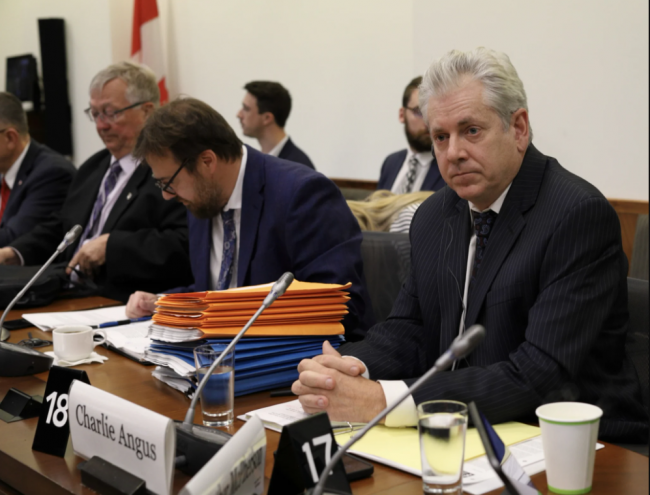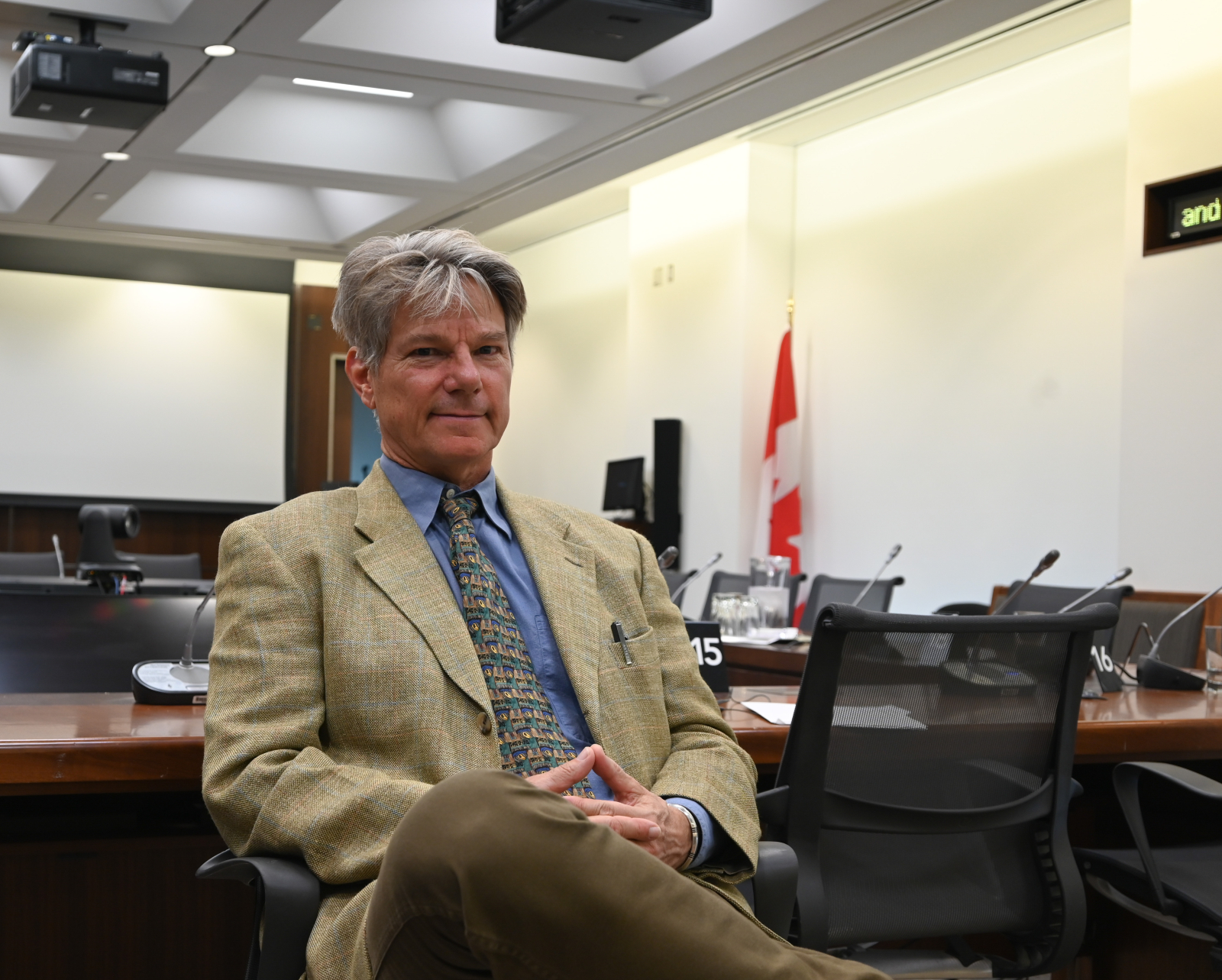Articles Menu

Oct. 17, 2023
Following a federal committee hearing that dragged a Suncor executive over the coals for his company’s plans to expand fossil fuel production, NDP MP Charlie Angus says now is the time to hold Big Oil accountable, and Ottawa is failing Canadians by not acting.
“[Monday], Suncor CEO Rich Kruger, former vice-president of Exxon, testified to Parliament, and the message that we got from Suncor was very clear,” Angus said at a press conference Tuesday morning. “They have no intention of taking responsibility for the damage that they are doing to the planet and no intention of changing course even as our planet is on fire.
“They are going full bore despite the calls of the International Energy Agency, despite the calls of the [Intergovernmental Panel on Climate Change], they're going full bore,” he added. “This is Canada's Big Tobacco moment and our government, the Liberals, are missing in action.”
Environment and Climate Change Minister Steven Guilbeault told reporters he didn’t hear anything in Kruger’s testimony that gave him confidence in Suncor’s climate plans.
“I think, if anything, he’s doubling down on the fact that a large oil company like his should ignore an issue like climate change and to me, that’s unacceptable,” he said. “And I think it reinforces the fact that we as a federal government need to make sure that the oil and gas sector does its fair share when it comes to fighting climate change.”
With states like California and Colorado suing oil and gas companies for suppressing climate science for decades despite knowing their products would lead to catastrophic impacts for the planet, Angus is drawing a direct comparison to the major lawsuits launched against Big Tobacco in the 1990s. Those lawsuits led to the tobacco master settlement agreement, the largest civil litigation settlement in U.S. history that requires tobacco companies to pay $264 billion over 25 years for their role in pushing harmful products on a public they actively deceived.
For Angus, the parallel is clear. Big Oil has misled the public about the risk of burning fossil fuels and should be made to pay. “There are now hundreds of lawsuits against companies like Exxon in jurisdictions all over the United States and all over the world and yet in Canada, it's business as usual,” he said. Angus pointed to Exxon as an example because it knew the climate science 40 years ago, and Kruger spent much of his career at the oil giant, including serving as president from 2008 to 2013.
Kruger was called to testify at the Standing Committee on Natural Resources after he told Suncor shareholders the company was too focused on the long-term renewable energy transition and should focus on maximizing profits from its lucrative oilsands assets. Kruger told MPs those comments refer to the need to make money now in order to afford decarbonization investments.
“We must ensure we're strong today so we can be strong tomorrow,” he told the committee. “Our commitments on decarbonization and being a part of the transition have not changed at all since I've taken over in this position six months ago.”
“This is Canada's Big Tobacco moment and our government, the Liberals, are missing in action," says @CharlieAngusNDP. #cdnpoli - Twitter

John Vaillant at the Standing Committee on Natural Resources on Oct. 16, 2023. Photo by Matteo Cimellaro/Canada's National Observer
Because the majority of emissions from the oil and gas industry arise when the product is burned, reducing emissions from oil extraction as Suncor plans does little to address the bulk of emissions from fossil fuels. Fossil fuels must be phased out entirely to stabilize the planet’s atmosphere.
That’s why award-winning author and journalist John Vaillant, whose latest book deals with the Fort McMurray wildfires, said Kruger’s “decarbonization” plans amount to burning some ethanol and investing in carbon capture –– tactics he called “tiny little micro-manoeuvrings in the face of a crisis.”
With more than hundreds of fires still raging, “we're still in the Black Summer of Canada,” Vaillant said. It “is the most painful wakeup that I think this country has ever had as far as the climate crisis.
“And it's directly linked to the expansion of fossil fuel development,” he said. “And again, this was documented and understood by the late 1960s… [Big Oil] confirmed this danger and they pressed ahead endangering all of us.”
Green MP Mike Morrice noted this year’s wildfires have burned over 175,000 square kilometres, while the five largest oil companies in Canada raked in $36 billion in profit last year. In the face of skyrocketing profits, the carbon tax is not enough of a stick to force oil companies to invest in renewable energy, he suggested.
“At the very least, we should be seeing an excess profit tax applied on the oil and gas industry,” he said.
Last year as the price of oil reached record highs, the United Nations urged governments to implement a windfall tax on fossil fuel companies. Several countries including the United Kingdom, Spain and Italy did, but Canadian officials routinely dismissed the possibility.
— With files from Natasha Bulowski
[Top photo: NDP MP Charlie Angus at the Standing Committee on Natural Resources on Oct. 16, 2023. Photo by Natasha Bulowski/Canada's National Observer]